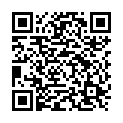|
|
|
| Module code: PIB-FFKC |
|
|
2V (2 hours per week) |
|
3 |
| Semester: 5 |
| Mandatory course: no |
Language of instruction:
German |
Assessment:
Written exam 90 min.
[updated 05.10.2020]
|
DFBI-346 (P610-0203) Computer Science and Web Engineering, Bachelor, ASPO 01.10.2018
, semester 6, optional course, informatics specific
KI656 Computer Science and Communication Systems, Bachelor, ASPO 01.10.2014
, semester 5, optional course, technical
KIB-FFKC (P222-0115) Computer Science and Communication Systems, Bachelor, ASPO 01.10.2021
, semester 5, optional course, technical
KIB-FFKC (P222-0115) Computer Science and Communication Systems, Bachelor, ASPO 01.10.2022
, semester 5, optional course, technical
MST.FKC (P231-0131) Mechatronics and Sensor Technology, Bachelor, ASPO 01.10.2012
, optional course, technical
MST.FKC (P231-0131) Mechatronics and Sensor Technology, Bachelor, ASPO 01.10.2019
, optional course, technical
MST.FKC (P231-0131) Mechatronics and Sensor Technology, Bachelor, ASPO 01.10.2020
, optional course, technical
PIBWI56 (P221-0109) Applied Informatics, Bachelor, ASPO 01.10.2011
, semester 5, optional course, informatics specific
PIB-FFKC (P221-0109) Applied Informatics, Bachelor, ASPO 01.10.2022
, semester 5, optional course, informatics specific
PIB-FFKC (P221-0109) Applied Informatics, Bachelor, SO 01.10.2026
, semester 5, optional course, informatics specific
MST.FKC (P231-0131) Mechatronics and Sensor Technology, Bachelor, ASPO 01.10.2011
, optional course, technical
|
30 class hours (= 22.5 clock hours) over a 15-week period.
The total student study time is 90 hours (equivalent to 3 ECTS credits).
There are therefore 67.5 hours available for class preparation and follow-up work and exam preparation.
|
Recommended prerequisites (modules):
None.
|
Recommended as prerequisite for:
|
Module coordinator:
Dipl.-Math. Wolfgang Braun |
Lecturer: Dipl.-Math. Wolfgang Braun
[updated 01.10.2006]
|
Learning outcomes:
After successfully completing this module, students will have a basic understanding of the importance and problems of error identification and correction. In addition, they will:
- be able to explain basic terms (redundancy, code rate, generator matrix, check matrix, Hamming distance,
Hamming limit, _)
- have mastered arithmetics in finite fields of the type GF (p)
- Coding and decoding of linear binary block codes: have an understanding of the theoretical interrelationships
and have mastered execution by means of matrix calculation
- be able to construct Hamming codes
- be able to classify binary block codes according to their performance capability
- Coding and decoding of cyclic codes via GF (2): have an understanding of the theoretical interrelationships
and have mastered execution by means of polynomial operations
- have knowledge of coding theory applications in various fields
- be able to implement basic algorithms from the lecture in a common programming language
- have gained insights into how the coding theory can be developed further
- have learned how mathematical theories can be translated into practice-relevant algorithms in computer science
[updated 06.09.2018]
|
Module content:
- Principle of coding a message for error identification and error correction
- Simple error identification and correction procedures (ISBN No., EAN code, repeat code, 2-dimensional
parity, _.)
- The ring of integers, residue classes
- Computations in finite fields GF (p)
- n-dimensional vector spaces over GF (p)
- Linear block codes over GF (2)
- Hamming codes
- Cyclic codes over GF (2)
- Applications and perspectives (ECC-RAM, CRC-32, CIRC, digital TV,
matrix codes, extension of coding theory by GF (2^n), convolutional codes, _.)
The lecture will concentrate on the algebraic methods. A statistical treatment of the transmission channel (e.g. _Entropy_, _Markov sources_), as well as an implementation of the algorithms by means of hardware are not part of this lecture.
[updated 19.02.2018]
|
Teaching methods/Media:
Lecture with integrated exercises using a script, demonstration of basic algorithms using Maple.
[updated 19.02.2018]
|
Recommended or required reading:
Lecture script with exercises
Werner, M.: Information und Codierung, vieweg, Braunschweig/Wiesbaden 2002
Klimant, H. u.a. : Informations- und Kodierungstheorie, Teubner, Wiesbaden 2006
Schulz, R.-H. : Codierungstheorie, vieweg, Wiesbaden 2003
[updated 19.02.2018]
|
Module offered in:
SS 2022,
SS 2021,
SS 2020
|


